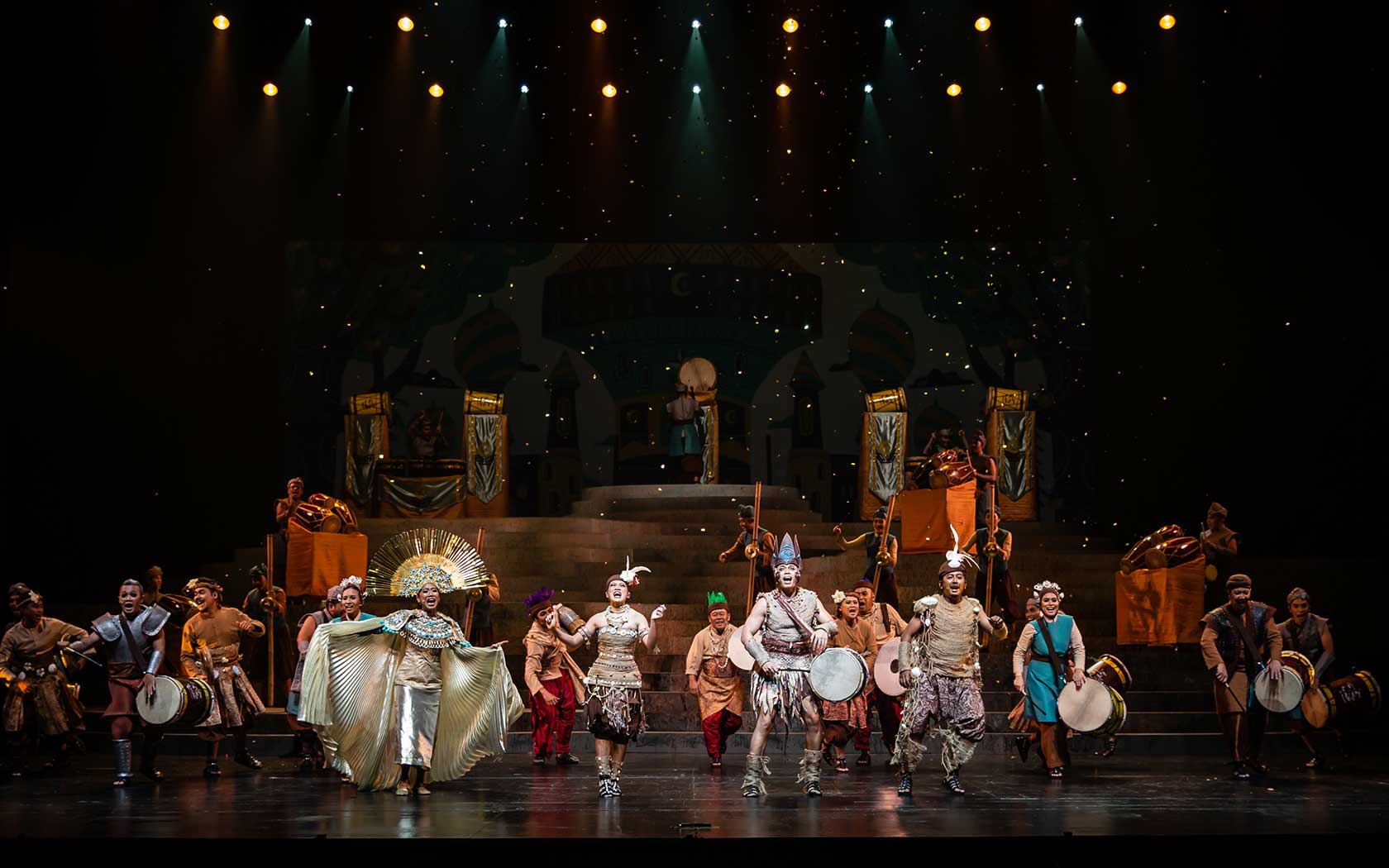Two of the most prominent muezzins in İstanbul, Imams (religious leaders) Bekir Büyükbaş and Yunus Balcıoğlu, will showcase the artistry of Quran recitation, under the glass domes of the Esplanade Concert Hall foyer. An honoured and respected role in Islamic communities, a muezzin is a practitioner appointed to recite the Ezan based on his mastery and expression of Quran recitation, as well as religiosity. This session culminates at sunset with the Ezan* (Islamic call to prayer).
About Quranic recitation
Central to Islamic worship and devotion is the memorisation and recitation of the Quran, which is done through melodic reading of the text. More than mere singing, there are codified systems by which pronunciation and rhythmic cadence of every syllable are governed.
Seven recognised lineages or recitation styles exist—known as qira’at, they were associated with different prominent reciter-scholars of the 2nd and 3rd centuries after the revelation of the Quran. These reciter-scholars came from the holy cities of Mecca and Medina, Damascus in Syria, as well as Kufa and Basra in modern-day Iraq; each of the seven lineages reflects the dialectic differences that existed amongst Arabic speakers of the time.
In addition to the rules that ensure fidelity of recitation, emotion and beauty are woven into the vocal delivery of the sacred texts, through the usage of different musical modes known as maqam. Maqams are used in all music of the Middle East, and to most foreign ears, gives the music of the region its signature flavours. In Quran recitation however, the approaches of using the maqams are more specific, and they are chosen to create feelings of introspection, humility, steadfastness, or compassion, and selected to match the emotional content of the text.
Mastery of recitation for transcendence
Religious scholars further formalised rules of recitation called tajwid, which standardised intonation, phonetics and punctuation. This became increasingly important as Islam spread to more non-Arabic speakers—giving them clear guidelines on how to recite the Quranic texts in the way that the Prophet Muhammad was said to have pronounced them.
Mastery over these sets of rules is expected by at least one member of every Islamic community, although it is a personal obligation of all members to practise it. Beyond rules and obligation, the recitation of the Quran is an art in itself; and in its aesthetics, invokes in Muslims a profound sense of spirituality and transcendence.
For a fuller experience, oil sampling by The Naturalist Grandeur with Frankincense with Grapeseed Oil, will complement this programme. The fragrance has been appropriately diluted in the carrier oil so that patrons are able to apply them onto their skin safely.
*The venue will remain open as a contemplative space for patrons, up to 20 minutes after the end of the performance.











